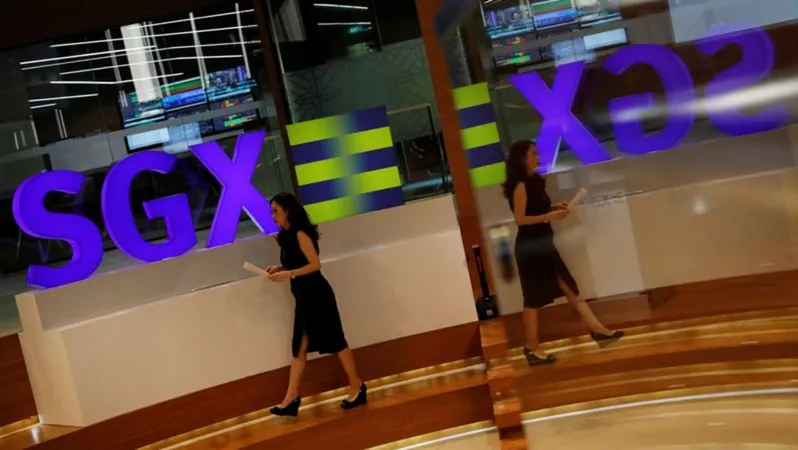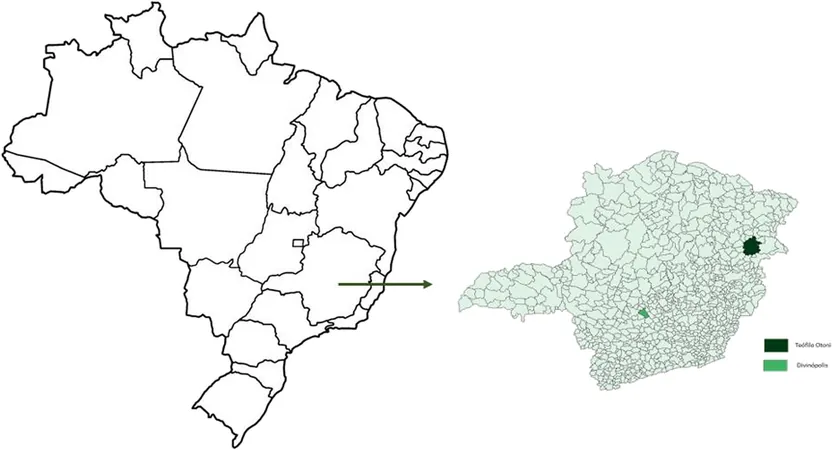
Market Watch: Singapore Stocks Face Uncertain Future Amid Global Economic Shifts
2025-01-02
Author: Siti
SINGAPORE: As we step into 2025, market analysts express a tempered outlook on Singapore's stock performance, indicating that the bullish sentiment observed last year may not carry over. Multiple factors, including potential changes in global interest rates and looming trade tensions as the United States prepares for a significant political transition, contribute to this cautious perspective.
Last year, Singapore’s benchmark Straits Times Index (STI) saw an impressive uptick of 16.9%, buoyed primarily by the robust performances of the local banking sector. Industry experts are optimistic that the finance sector will continue to thrive in the near term, bolstered by strong net interest income and recovery in wealth management activities. Yeap Jun Rong, a market strategist at IG Asia, commented, 'The banks' earnings are set to benefit as the Federal Reserve slows its rate-cutting cycle, supporting their interest income.'
HEADWINDS AHEAD
However, the economic landscape appears more challenging in 2025. Experts caution that demand fluctuations from crucial trading partners like China, the US, and the European Union could significantly impact Singapore's export-driven economy. Persistent high US interest rates might stifle domestic economic growth, resulting in downward pressure on local equities.
Real estate investment trusts (REITs), which have benefitted from a low-interest-rate environment, are expected to struggle in the early part of the year. Geoff Howie, a strategist at the Singapore Exchange, pointed out the critical metrics to observe: net property income, occupancy rates, and rental reversions will be key indicators for REIT performance.
China's economic recovery also looks uncertain, with consumer and business confidence lacking momentum. Yeap noted, 'For now, the world’s second-largest economy faces several hurdles. A stronger recovery in China is essential to provide a boost to Singapore’s export demand.'
The political climate in the US adds another layer of complexity. The impending presidency of Donald Trump raises the specter of tariff impositions, potentially aggravating already rising geopolitical tensions with China. 'Any trade retaliation will inevitably create headwinds for Singapore’s export growth,' cautioned Yeap.
As Singapore prepares for its own general elections by November, investor sentiment will likely hinge on the electoral outcome, adding another potential variable to market performance.
A MIX OF CAUTIOUS OPTIMISM
Despite concerns, there are positive indicators. Last year, Singapore's economy exceeded expectations, growing at 4%, although forecasts predict a slowdown to 2-3% growth in 2025. Howie suggests that investors adopt a stance of 'cautious optimism,' highlighting significant improvements in sectors such as personal electronics and petrochemicals.
Valuation metrics indicate that Singapore equities remain attractively priced compared to international counterparts. Additionally, the Johor-Singapore Special Economic Zone is poised to enhance connectivity and open fresh avenues for business.
Tourism is on the rebound, with international visitor numbers returning to pre-pandemic levels, further supporting economic recovery. Yeap said, "The silver lining for 2025 is that macroeconomic conditions in Singapore are likely to remain stable."
Looking ahead, the Monetary Authority of Singapore's review group aims to bolster the local stock market, with discussions about increasing public listings and strengthening regulatory frameworks. This initiative holds promise for enhancing market growth, with a report on recommendations expected later in the year.
As the new trading year begins, Singapore stocks opened relatively flat, gaining just 0.16% at 3,793.57. With a mix of uncertainty and cautious optimism, stakeholders will be closely monitoring these economic indicators and geopolitical developments in the months ahead.



 Brasil (PT)
Brasil (PT)
 Canada (EN)
Canada (EN)
 Chile (ES)
Chile (ES)
 Česko (CS)
Česko (CS)
 대한민국 (KO)
대한민국 (KO)
 España (ES)
España (ES)
 France (FR)
France (FR)
 Hong Kong (EN)
Hong Kong (EN)
 Italia (IT)
Italia (IT)
 日本 (JA)
日本 (JA)
 Magyarország (HU)
Magyarország (HU)
 Norge (NO)
Norge (NO)
 Polska (PL)
Polska (PL)
 Schweiz (DE)
Schweiz (DE)
 Singapore (EN)
Singapore (EN)
 Sverige (SV)
Sverige (SV)
 Suomi (FI)
Suomi (FI)
 Türkiye (TR)
Türkiye (TR)
 الإمارات العربية المتحدة (AR)
الإمارات العربية المتحدة (AR)